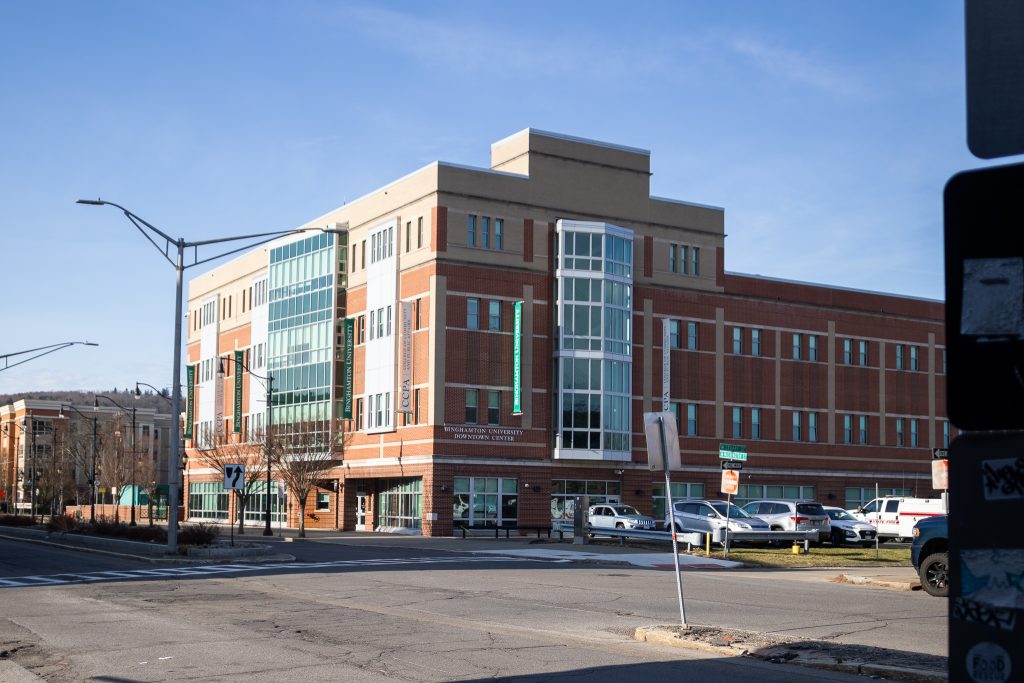The Institute for Genocide and Mass Atrocity Prevention will host its annual Frontiers of Prevention conference this weekend. The event will feature around 24 experts divided into seven panels on atrocity prevention in regions across the world.
First held in 2018, the program began as a “‘normal’ academic conference” with prepared papers and slideshows, according to Maxim Pensky, a co-director of I-GMAP and professor of philosophy. After the COVID-19 pandemic ended, organizers restructured the event to focus on unscripted discussions between panelists and the audience.
“The event gathers atrocity prevention practitioners from government, civil society, and academia from around the globe to spend two days of intense, informal conversation at Binghamton’s University Downtown Center,” Pensky wrote. “Over the eight years of its existence Frontiers of Prevention has now established itself as a highly visible annual event in the broader international community of atrocity prevention practice.”
“It also allows BU students and faculty and the broader Binghamton community the chance to experience firsthand how that international community works, and to engage in discussions with experts on key current events that affect all of us, whether they are half a world away or here in the United States and in our communities,” he continued.
This year, students and faculty can attend panel discussions centered around specific regions, like the crises in Sudan and Gaza. Discussions on refugees in Kenya and the role small grassroots organizations and educators play in atrocity prevention will also be included — including a panel focused “on the atrocity risk implications of the second Trump administration.”
On Friday, the institute will present the Nadia Rubaii Memorial Prize to “The Parents Circle — Families Forum,” an Israeli–Palestinian peace organization made up of families who have lost relatives in the ongoing violence. Robi Damelin and Sima Mohammed Awad, who are Israeli and Palestinian, will accept the award — named in honor of the late Nadia Rubaii, an I-GMAP’s founding co-director. They will deliver an acceptance speech, titled “Shared Grief, Shared Hope: Israelis and Palestinians for Peace.”
The award was created in 2023 and is awarded annually. The previous winners have included Maria Ressa, a Nobel Peace Prize laureate who founded a top news site in the Philippines, and Frank Mugisha, a Ugandan LGBTQ+ activist.
Established in 2016, I-GMAP is committed to making the University a leader in preventing atrocity violence, including genocides, crimes against humanity and war crimes. The institute offers a range of programs for students, like an interdisciplinary minor, a graduate certificate and a master’s degree in genocide and mass atrocity prevention.
“We think Frontiers of Prevention and events like it are more valuable than ever at a time when polarization, democratic backsliding, and political uncertainties are far more concerning than they have been in generations,” Pensky wrote. “All societies have risks for political violence and mass atrocities, just as all societies have sources of resilience that they can draw on to address and help reduce those risks. Frontiers of Prevention has the goal of creating a durable space where very differently situated people can come together in an open, equal, and productive space to discuss both risks and resiliencies.”



